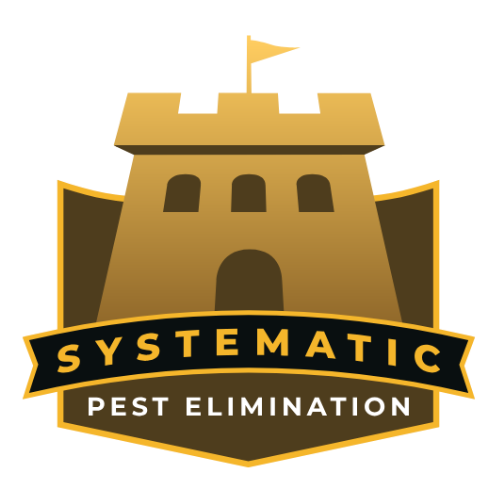Running a restaurant in the bustling heart of New York City can be a thrilling endeavor. The city’s vibrant culinary scene offers an array of flavors and experiences to indulge in, attracting millions of diners from around the world. However, to thrive in this competitive environment, one must not only focus on the quality of the cuisine but also on ensuring a clean and safe dining environment. A restaurant health inspection is a crucial aspect of this, and in this article, we’ll explore strategies to ensure you pass with flying colors.
Understand the Inspection Process
Before diving into the specifics, it’s essential to understand the inspection process itself. NYC restaurant health inspections are conducted by trained health inspectors who visit your establishment unannounced. They assess various aspects of your operation, including food handling, sanitation, and overall cleanliness. Violations are assigned points, with more severe issues receiving higher point values.
Prioritize Employee Training
Properly trained staff are your first line of defense against health inspection violations. Ensure all your employees, from chefs to servers, are well-versed in food safety practices. This includes knowing how to handle food safely, maintaining personal hygiene, and understanding the importance of sanitation. Regular training sessions and reminders help reinforce these crucial practices.
Implement Robust Cleaning Procedures
A clean restaurant is a fundamental requirement for passing NYC health inspections. Regular cleaning routines should cover every nook and cranny of your establishment, from the kitchen to the dining area and bathrooms. Pay particular attention to high-touch surfaces and equipment, as these are common areas where violations can occur. Consider implementing a daily cleaning checklist to ensure nothing is overlooked.
Maintain Proper Food Storage
Food storage practices are a significant focus during health inspections. Make sure your staff is aware of the importance of proper storage temperatures and techniques. Perishable items should be stored at the appropriate temperature to prevent bacterial growth. Label all items with dates to ensure proper rotation and discard expired products promptly. Keep raw foods separate from ready-to-eat items to prevent cross-contamination.
Check for Pests
New York City’s dense urban environment can make it susceptible to pest issues. Regular pest elimination measures are essential to prevent infestations. Partner with a reputable pest elimination service and maintain records of their visits. Pest elimination services play a crucial role in preventing and managing pest infestations in your NYC restaurant. These services typically offer a range of activities to ensure a pest-free environment. Services include:
- Inspections: Pest elimination professionals conduct regular inspections to identify signs of infestations or vulnerabilities that may attract pests. They examine areas such as kitchens, storage spaces, dining areas, and entry points.
- Treatment: If pests are detected, pest elimination services employ various methods to eradicate them. This can include the use of pesticides, traps, and baits, often tailored to the specific pest species.
- Preventative Measures: Beyond addressing existing infestations, these services implement preventive measures. They may seal entry points, advise on sanitation practices, and recommend improvements to storage and waste management to minimize pest attraction.
Establish a Comprehensive Cleaning Schedule
In addition to daily cleaning routines, establish a more comprehensive cleaning schedule for deep cleaning tasks, including thorough equipment cleaning, ductwork cleaning, and other maintenance tasks that can accumulate over time. Regularly review and update this schedule to ensure that nothing is neglected.
Properly Maintain Equipment
Well-maintained equipment ensures smooth restaurant operations and plays a significant role in passing health inspections. Regularly service and maintain all kitchen appliances, refrigeration units, and ventilation systems. Address any equipment malfunctions promptly to prevent food safety issues.
Conduct Self-Inspections
One proactive approach to preparing for NYC restaurant health inspections is to conduct your own self-inspections. Use the same checklist that health inspectors follow and evaluate your restaurant as if you were the inspector. This will help you identify and address potential issues before the inspection occurs. Be honest with your assessments and use them as an opportunity for improvement.
Keep Detailed Records
Documentation is a critical aspect of compliance. Maintain thorough records of your cleaning schedules, pest elimination visits, employee training, and equipment maintenance. Having these records readily available during an inspection not only demonstrates your commitment to safety but can also help clarify any discrepancies that may arise.
Prepare for the Unexpected
Health inspections are unannounced, which means you must be prepared for them at all times. Train your staff to know what to do when an inspector arrives. Ensure that your documentation is easily accessible and up to date. Maintain a calm and cooperative attitude during the inspection process, addressing any issues or questions the inspector may have promptly.
Address Violations Promptly
If the health inspector identifies any violations during the inspection, take immediate action to address them. Corrective measures should be implemented swiftly to prevent the issue from recurring. Keep in mind that you can request a reinspection after correcting violations, so take advantage of this opportunity to demonstrate your commitment to food safety.
Passing your NYC restaurant health inspection is not just a regulatory requirement; it’s a testament to your commitment to providing a safe and enjoyable dining experience for your customers. By prioritizing food safety practices, employee training, and thorough documentation, and by utilizing professionals such as Systematic Pest Elimination, you can ensure that your restaurant not only passes inspections but also thrives in the competitive culinary landscape of New York City. Remember, a clean and safe environment is the foundation upon which your culinary creations can truly shine, delighting diners and keeping them coming back for more.
